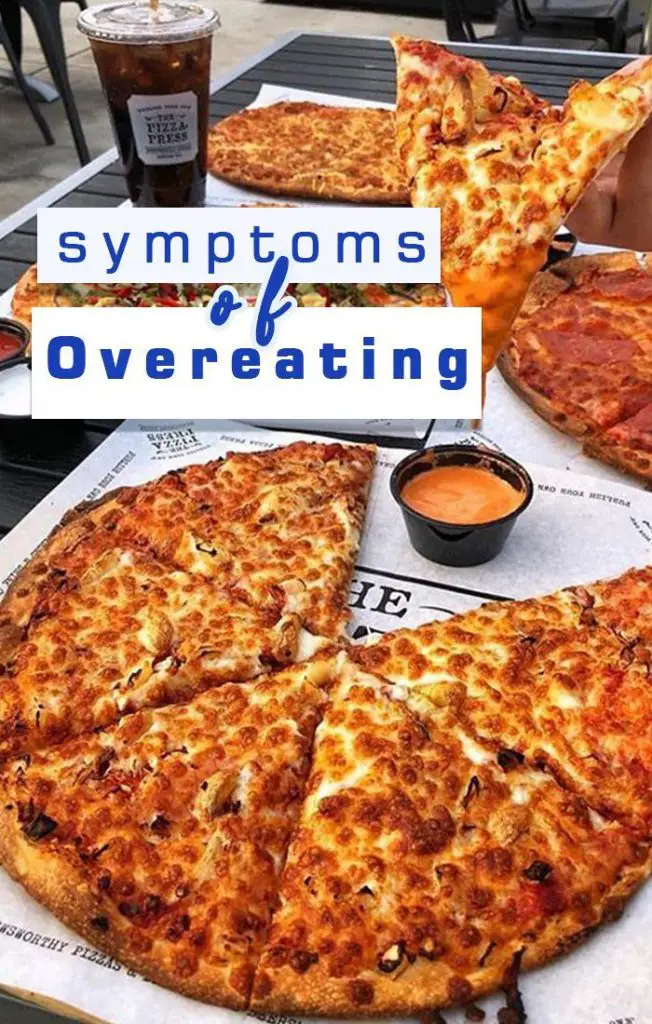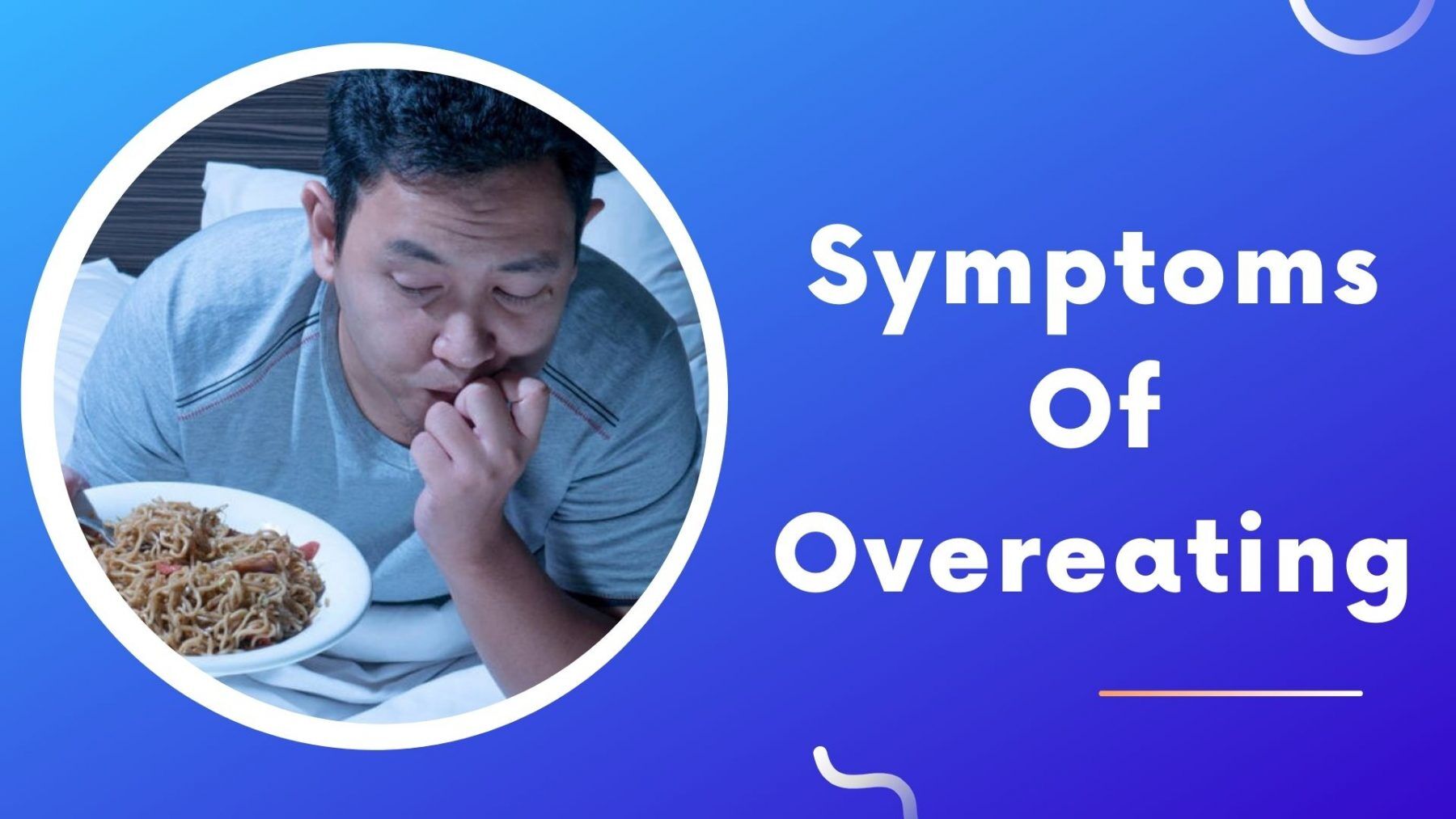The symptoms of overeating are all too common.
Drive anywhere in your car and within a few minutes you can already be through the drive-through. The cheapest foods, wherever you buy food, are plastic wrapped sugary sweets.
And sugary foods really are nice to eat. C’mon, admit it! Who doesn’t like a king-sized candy bar every now and then?
It’s easy to overeat for many reasons, including the three we just covered:
- convenient
- cheap
- tastes good
But why do some people get stuck in overeating patterns? Why do some continue to overeat each day whereas others only overeat at their birthday party?
You’d think you’d learn your lesson too, right?
It turns out the symptoms of overeating cause a chain reaction, which cause you to overeat again and again.
About 3% of people in the US are diagnosed with Binge Eating Disorder. And for every one person officially diagnosed with Binge Eating Disorder, imagine how many have Binge Eating Disorder but haven’t been diagnosed!
See, the symptoms of overeating are like gambling. You start off small, but after a few instances of eating bliss you keep returning to food long term.
Your waistline grows as one of several main symptoms of overeating, which we’ll cover below.
But the heart of this post is showing how overeating symptoms cause chain reactions which spiral out of control into binge eating and in some cases, develop an eating disorder.
1 – Feeling Too Full
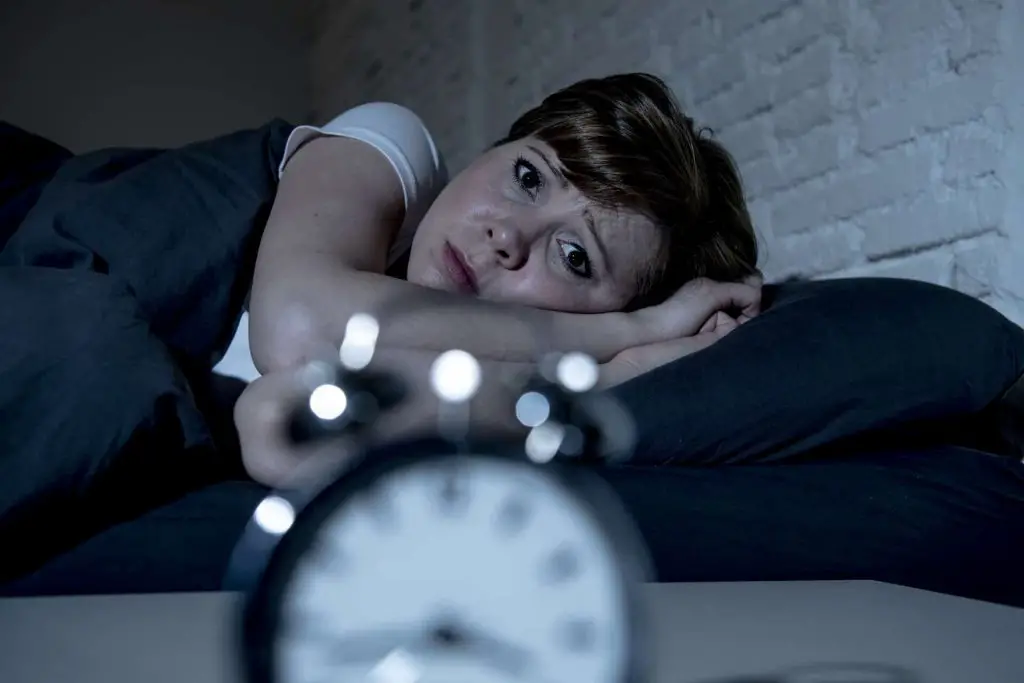
One of the most obvious symptoms of overeating is you feel too full!
The sensation of fullness is a sign to stop eating, but when you have a habit of eating too much then your feelings of fullness become distorted.
You may grow accustomed to overeating large amounts of food and find yourself feeling hungry again soon after you have a meal.
In some cases, people who get full from overeating may feel food cravings more than ever before because they are so used to eating for the sake of being fuller.
A person’s feelings of hunger become less sensitive when their diet consists of foods that cause them to overeat. This is why it is important to pay attention not just to what we eat but how much as well!
These hunger feelings often lead to weight gain and obesity which then can lead diseases such as diabetes with all its negative consequences, and Binge Eating Disorder.
What Happens When You Overeat One Day?
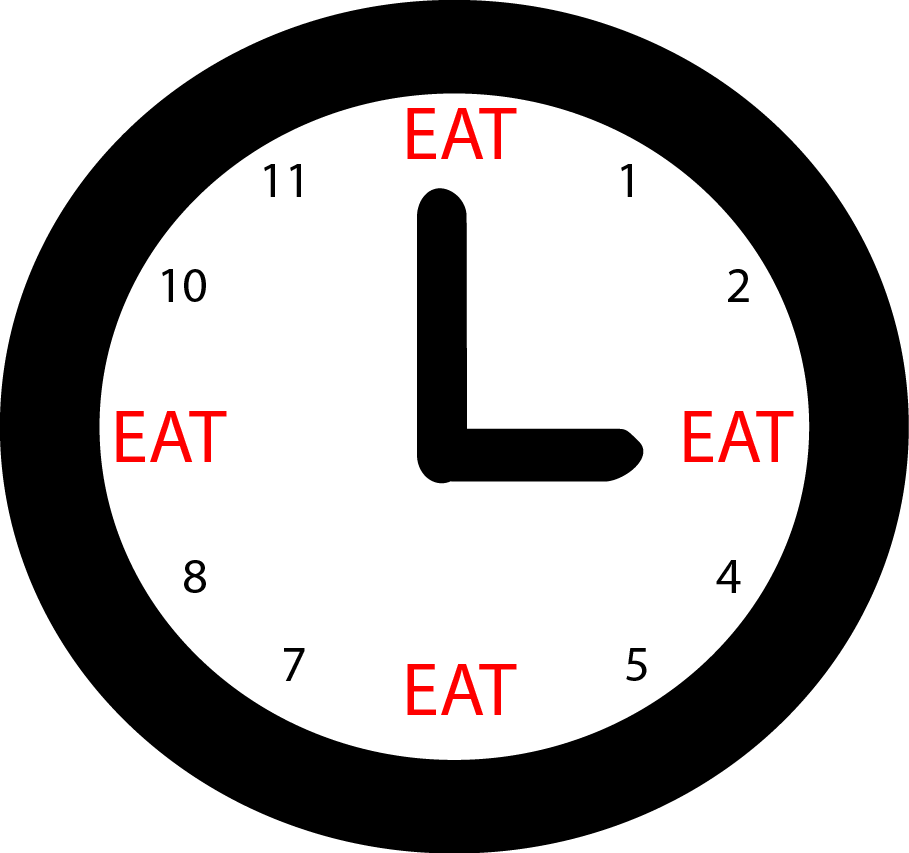
Please remember this next point because it’s really important!
If you overeat every once in a while, there’s no problem!
Look, it’s human nature to overeat from time to time. We’re not perfect and we don’t expect you to be.
The only thing that will happen if you overeat just one day is that you’ll feel like crap for a few hours.
But if you overeat every day of the week, well then we got problems!
The symptoms from overeating start small: weight gain, headaches, etc…
But they grow into much more serious conditions such as diabetes, negative mental health, or heart disease when left untreated.
The key thing is being honest with yourself here. Do you occasionally overeat during the holidays and at friend’s birthday parties?
Or do you frequently lose control around food on a daily or weekly basis?
2 – Weight Gain
The natural consequence of overeating is gaining weight.
We’ve all heard about the consequences of gaining too much weight:
- High cholesterol
- High blood pressure
- Other diseases like diabetes
While it’s important to know about the health consequences of obesity and weight gain, I would say the US is paranoid about weight gain!
We get terribly hung up on the numbers like “I gained two pounds” or “I lost five pounds”.
From a cultural perspective we think gaining weight is like a sin! In fact in traditional Western culture overeating (or gluttony) is commonly perceived as a sin!
But as strange as this might sound …
It’s not the weight gain which is the problem, but it’s how people react to gaining weight which is the problem!
3 – Guilt, Shame or Disgust
Wait, weight gain isn’t the problem, it’s our reaction to weight gain? What does that mean?
Let me explain. I work at an Eating Disorder Center and often clients come in with Bulimia. Bulimia is an eating disorder where you are very afraid of weight gain.
To stop weight gain from happening, people with Bulimia will either vomit or exercise like crazy to prevent weight gain.
But vomiting and exercising to prevent weight gain are terrible strategies!
For starters, vomiting only rids your body of 50% of the calories you just ate. And even an intense hour on the treadmill is barely equal to a slice of pizza!
If you had a few extra slices of pizza and believed you needed to ‘run’ off the calories, well, you’d be on the treadmill all night!
In this eating disorder situation, people have an extremely negative reaction to gaining weight.
Instead of merely gaining a few pounds, now they have gained a few pounds AND are trapped in a vicious eating disorder!
Our Western culture teaches people (myself included) that eating too much is a sin. And what do we do about sin? Obviously we humans are good people for the most part and don’t want to sin!
So we feel really guilty, shameful, don’t tell anybody, and end up binge eating alone all the time!
See how the real problem here is guilt, shame and embarrassment?
What To Do When You Overeat and Feel Sick or Guilty?
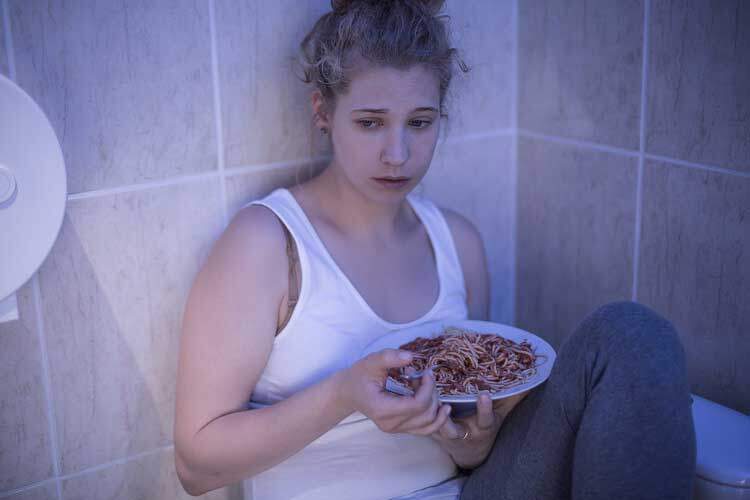
The typical emotional reaction to overeating is guilt.
The feeling of guilt is what drives people to vomit, over exercise, or diet – but these are precisely the things NOT to do after you overeat.
Sometimes the feeling of guilt even drives people to eat even more! For example, have you ever been bored one evening and then ate too many slices of pizza at dinner?
And then because you already overate and now you feel guilty and embarrassed, why not just keep eating?
You already screwed up, so why not just f*** it and gorge yourself?
Unfortunately the isolation many people may have experienced during covid 19 just makes things worse.
You’re all alone so nobody will ever know how much you eat!
The key takeaway here is to see how guilt leads to unwise actions such as:
- Overeating because you want to eat your feelings of guilt away
- Dieting because you want to undo your mistake of overeating from which you feel guilty
- Vomiting because you are SO guilty (or afraid of weight gain) that you force yourself to purge
- Binge eating because you felt guilty, didn’t eat anything the next day and then got super hungry
If you see how guilt NEVER makes things better but ONLY makes things worse …
Then you can more easily shift to this new ‘enlightened’ mindset:
Guilt is never the right answer! Curiosity about and awareness of my eating habits is the right answer.
For example, instead of thinking to yourself, ‘I am worthless’ after a binge, it’s better instead to practice thinking ‘Why did I overeat?’
Whenever I help someone with Binge Eating Disorder I always emphasize this mindset. Because in treatment for compulsive binge eating you won’t just stop overnight.
But if you beat yourself up afterwards every time then you won’t be able to learn from your mistakes and you’ll end up repeating them!
4 – Can’t Stop Thinking About Food
What’s the natural consequence of eating too much, gaining weight and feeling guilty?
You end up unable to stop thinking about food!
Let’s look at two common but different responses.
- Dieting response: You overate, feel guilty and decide to diet. But then you have to count calories all day long and measure your weight. You end up fixating on food and weight.
- Fear response: You lost control and ate too much. Now you are living in fear of when you’ll overeat again. Your thoughts are all anxious thoughts about food and how to avoid losing control again.
Do you see how each response ends up with you obsessing and worrying about food?
I can’t tell you how many stories I’ve heard about people who cannot stop thinking about food.
People have constant, intrusive thoughts about food every single day, 24 hours per day.
It’s like having a food demon live on your shoulder and YELL into your ear whenever any situation loosely related to food presents itself.
How Do I Recover After A Day Of Overeating?
Now let’s switch gears and start talking about how to properly respond to overeating.
The big idea here is to not do anything radically different, even if you overeat.
Most people try to change after they overeat and do something different. For example, here are some ways people change their behaviors after they eat too much:
- diet
- over exercise
- skip meals
- feel guilty and beat themselves up
But what if you didn’t do any of these things?
What if you ate breakfast the next day instead of skipping this meal, even though you weren’t totally hungry because you overate last night?
What if you didn’t do any extreme exercise to burn off those extra calories, but just went on a nice 20 minute walk every day no matter what?
And most of all, what if you didn’t feel guilty about overeating, or any of the other symptoms of overeating?
What I’m suggesting here is that you do these things if you overeat:
- don’t skip meals
- exercise a bit each day and try to have fun with it
- never beat yourself up or feel guilty
Now I do realize it might sound like I’m saying, ‘To stop overeating just do nothing!’
That’s NOT what I’m saying. But, if you have the end in mind then you can begin to take steps in that direction.
For example, you know that diets and over exercise are NOT the solutions. So what is the solution?
What alternatives do you have besides eating too much and exercising?
Let this be an open-ended question. Let this be a discovery.
What if you started expressing yourself more via journaling? Or took up yoga or meditation?
The Buddha had a famous teaching about The Middle Way. That between extremes, you could discover a Middle Way.
What is this middle way for you? I know we’re ending this blog post abruptly, but that’s so you think for yourself.
If not dieting or bingeing, then what?
Let me know your thoughts in the comment section below!
